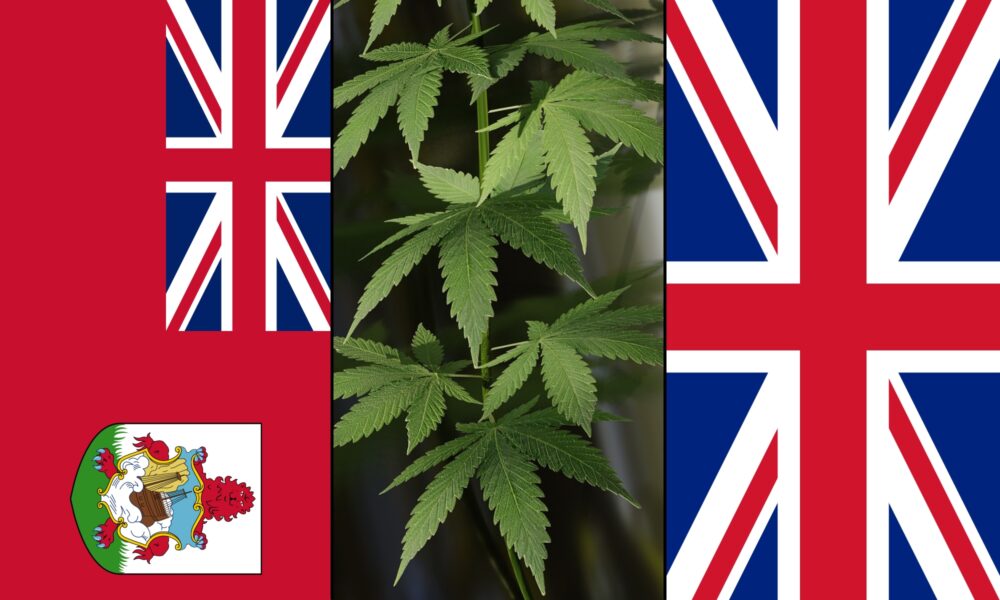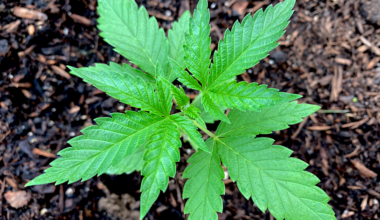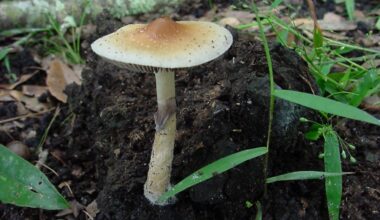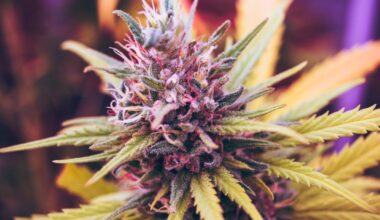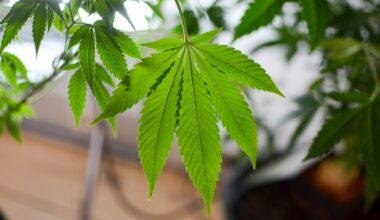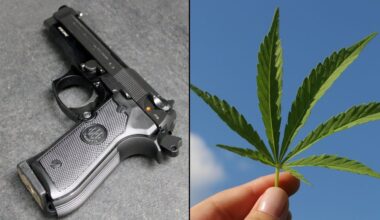The United Kingdom has a new leader. And one of the government’s first acts under Prime Minister Liz Truss was to refuse to give formal permission to allow Bermuda to enact a law to legalize and regulate marijuana—despite reports that Truss herself previously supported legalizing cannabis.
This is a development that top Bermuda officials and UK reform advocates are not taking lightly, with some characterizing it as colonialist era overreach by the UK that may rise to the level of a constitutional crisis.
Lawmakers in Bermuda, a British territory since the 17th century, approved the administration’s “flagship” cannabis legalization proposal earlier this year, but it was withheld for months as the government awaited “royal assent”—a formal, monarchical sign-off on legislation—from the UK-appointed governor of the territory.
Then, on the same day that Truss became prime minister of the UK, the government informed Bermuda that it had decided “not to assent to the bill as drafted,” Bermuda Gov. Rena Lalgie announced. The UK said it couldn’t give its authorization based on its interpretation of international treaties that bar member states from legalizing cannabis for reasons beyond medical or scientific use.
Still, Bermuda’s attorney general said in a statement on Tuesday the government will press on to enact the reform despite the denial of assent.
“Disappointing but not surprising, given the confines of our constitutional relationship with the UK Government and their archaic interpretation of the Narcotic Conventions,” Attorney General Kathy Lynn Simmons said. “The People of Bermuda have democratically expressed their desire for a regulated cannabis licensing regime following the strong endorsement at the ballot box and an extensive public consultation process.”
“The Government of Bermuda intends to continue to advance this initiative, within the full scope of its constitutional powers, in keeping with our 2020 General Election Platform commitment,” Simmons said.
A terrible start to @TrussLiz‘s govt as Britain, a backwards colonial power, stamps on Bermuda’s democratic decision on intelligent, evidence-based #drugspolicy. UK has said no, we don’t care what your Parliament decided, you may not legalise #cannabis https://t.co/cxe3yEUlQI pic.twitter.com/MwHruCV7nE
— CLEAR Cannabis Law Reform (@CLEARUK) September 7, 2022
Under the Bermuda proposal, a marijuana regulatory authority would be established to manage cannabis business licensing and make recommendations on future policies. Adults 21 and older could possess up to seven grams in a “public place,” or more if they have a valid license type. The “intent” of the bill is to prioritize licensing for people disproportionately impacted by the drug war.
Fees collected by licensees would cover the costs of administering the program, and that revenue could also be divided up to support drug treatment programs, cultivation training for licensees and scientific research into cannabis.
Governor Rena Lalgie, for her part, said that she’s “informed the premier and relayed the UK’s continued desire to work with Bermuda on reforms within the scope of our existing international obligations.”
“The Secretary of State for Foreign, Commonwealth and Development Affairs concluded that the Bill, as currently drafted, is not consistent with obligations held by the UK and Bermuda under the 1961 Single Convention on Narcotic Drugs and the 1971 Convention on Psychotropic Substances,” she said.
Lalgie previously said in May that the UK “supported and is currently assisting some of the Crown Dependencies and other Overseas Territories to develop policy and legislation in a way which is compliant with the relevant Conventions.”
“I hope that Bermudian officials will work together with UK officials to find a way forward—one that does not result in life changing criminal records for users of small amounts of cannabis and unlocks commercial opportunities, whilst maintaining Bermuda’s excellent reputation for upholding the rule of law,” she said at the time.
Bermuda Premier David Burt of the Progressive Labour Party didn’t immediately react to the denial of assent—but he warned earlier this year that if UK stood in the way of this legislation, it would “destroy the relationship we had with the United Kingdom.”
Steve Rolles, senior policy analyst for the Transform Drug Policy Foundation, told Marijuana Moment on Wednesday that “Bermuda wants to legalize, but while nominally independent, its legal status is quite confusing—it requires UK crown authorization for something like this, which hasn’t been granted. It’s colonial era bullshit.”
There are several folds to this development. It’s unclear, for example, whether the denial of assent is a reflection of the new UK government leadership’s position on legalization, or if the decision was carried over from the prior administration under Prime Minister Boris Johnson.
In any case, Truss, the new Conservative prime minister, was a key figure in the prior government.
Until Tuesday, she occupied the position of secretary of state for foreign, commonwealth and development affairs, which oversees the approval or denial of assent. Truss was previously a Liberal Democrat, and she reportedly supported cannabis legalization. One former friend told BBC Radio 4 that Truss tried plastering the walls of their university with posters reading “Free the Weed.”
Also notably, the UK did grant royal assent to Canada after the country legalized cannabis in 2018. That was under the administration of Prime Minister Theresa May, also of the Conservative Party. Canada’s move to legalize also flouted the same international treaties that the UK cited in denying assent to Bermuda.
However, Canada, along with Australia, is generally more independent from UK’s government, operating under a different legal status that gives them more legislative liberties compared to overseas territories like Bermuda.
The British government under Johnson separately faced criticism from the British Virgin Islands (BVI), where lawmakers passed a medical cannabis legalization bill in 2020 that has yet to receive assent, according to a June 2022 report from The BVI Beacon.
“It’s basically uncharted waters,” Rolles said of the latest development in Bermuda. “I’m not sure how long UK will hold out if pressure continues.”
In Bermuda, medical cannabis was legalized following a Supreme Court ruling in 2016 that allows people to petition for a license to legally possess and use marijuana for therapeutic purposes. Possession of up to seven grams of cannabis is also decriminalized.
Back in the UK, MP Lloyd Russell-Moyle of the Co-operative Party sharply criticized the government’s decision not to grant Bermuda assent for the cannabis reform.
The British Government today has intervened to stop Bermuda legalising cannabis but refused to intervene when they banned gay marriage saying it would be wrong to intervene. This is just wrong and will hasten calls for their independence.
— Lloyd Russell-Moyle MP🌹🏳️🌈 (@lloyd_rm) September 7, 2022
“The British Government today has intervened to stop Bermuda legalising cannabis but refused to intervene when they banned gay marriage saying it would be wrong to intervene,” he wrote. “This is just wrong and will hasten calls for their independence.”
California Governor Signs Child Welfare Bill Treating Parental Marijuana Use Just Like Alcohol
Medical Disclaimer:
The information provided in these blog posts is intended for general informational and educational purposes only. It is not a substitute for professional medical advice, diagnosis, or treatment. Always seek the advice of your physician or other qualified healthcare provider with any questions you may have regarding a medical condition. The use of any information provided in these blog posts is solely at your own risk. The authors and the website do not recommend or endorse any specific products, treatments, or procedures mentioned. Reliance on any information in these blog posts is solely at your own discretion.
